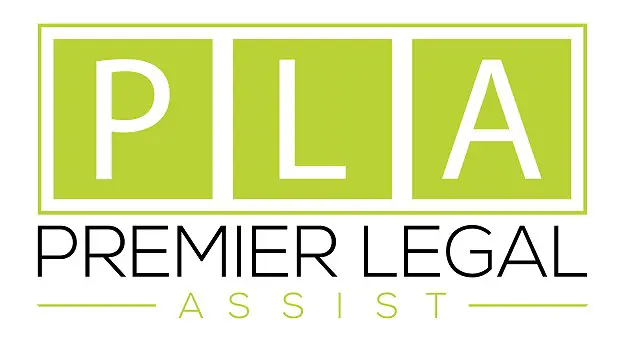Mould & Damp Complaints Rise 2,250% in Barnsley Council Homes
According to a local report, Barnsley Council properties, managed by Berneslai Homes, have experienced a huge surge in mould and damp complaints. Figures shown on Berneslai Homes’ complaints report highlight longer wait times for repairs as damp and mould complaints have risen by 2,250% between 2021 to present.
Rising complaints and longer waiting times
In 2022–2023, 71 complaints were recorded, increasing to 89 the following year. This year’s figures indicate the upward trend is continuing, with 94 complaints already registered.
Whilst all Berneslai tenants’ complaints were resolved within the financial period they were reported, wait times have increased. In the 2021-2022 period, complaint resolution averaged 11.5 days, rising to 22.5 days currently. As legislation continues to crack down on social landlords’ obligations, Berneslai Homes is undertaking a wider "rolling programme of works" to resolve damp and mould issues within their property portfolios.
Landlords must take accountability
Under the Landlord and Tenant Act 1985 and the Homes (Fitness for Human Habitation) Act 2018, tenants have the right to live in a property that is fit for human habitation at the beginning of their tenancy and throughout. This requires both private and social landlords to take action on any complaints within a reasonable timeframe.
When a landlord fails to act within a reasonable timeframe, it may cause tenants serious health and safety risks. The Social Housing (Regulation) Act, passed in 2023, increased regulations on social landlords designed to protect tenants from serious harm due to disrepair and hazards in their homes, such as:
• Mould, fungus or damp
• Leaks, flooding or water damage
• Cracks and structural damage
• Defective roofing or gutters
• Defective brickwork
• Insect infestations
• Faulty plumbing, heating and broken boilers
• Vermin infestations (rats/mice)
• Electrical faults
• Broken doors, windows, and locks
Awaab’s Law
In 2023, Awaab's Law was passed as part of the Social Housing (Regulation) Act 2023. Awaab’s Law is named after Awaab Ishak, a two-year-old boy who tragically died from mould exposure in a social housing property in December 2020. Awaab’s preventable death has sparked widespread scrutiny over social housing disrepair and landlord negligence.
Awaab's Law aims to protect social housing tenants from unsafe and unhealthy housing conditions. It is designed to hold landlords, local authorities, and housing associations accountable for dealing with emergency repairs and health-threatening issues like damp and mould more urgently. The Law will come into effect in October 2025 and will be gradually phased in over the next two years.
The following milestones are worth noting:
- October 2025: Landlords must address damp and mould hazards in a fixed timescale and perform emergency repairs, including those linked to damp and mould, within 24 hours.
- 2026: Initial requirements will be extended to include other serious hazards, such as excess cold and heat, structural issues, fire, electrical problems, and hygiene hazards.
- 2027: The Law will be extended to include all remaining hazards defined by the Housing Health and Safety Rating System (HHSRS), excluding overcrowding.
Raising a complaint with the Housing Ombudsman
To address tenant safety, Berneslai Homes has committed to getting to the root cause of the mould and damp issues within their properties. Their "rolling programme of works" includes a retrofit programme to ensure homes are comfortable, well-insulated and cheaper to heat. The organisation has also created a damp and mould ‘action plan’, assembled a team dedicated to responding to complaints, and have provided training materials to help tenants identify damp and mould at an earlier stage.
While Berneslai Homes has implemented a plan to tackle rising damp and mould claims and increased wait times, many housing associations across the UK continually fail to do so. In these cases, tenants can contact the Housing Ombudsman service (HOS) or seek legal advice for a housing disrepair claim. HOS is an independent public body aiming to improve residents' lives and landlords' services through investigating housing complaints. The service is independent and impartial and can decide on long-overdue complaints.
HOS upholds around 73% of claims that result in a maladministration finding which means a landlord has failed a legal, policy or process requirement.
Tenants may also be able to claim compensation for inconvenience, stress, and any damage to their belongings caused by unresolved repairs. Seeking early legal advice can help clarify what rights and remedies are available.
Premier Legal Assist – helping tenants
If you live in a property affected by disrepair, such as mould, leaks, broken heating, or structural issues, and your landlord has failed to take action within a reasonable time following your complaints, then you may be entitled to take your claim further.
Premier Legal Assist works with a team of specialist 'no-win, no-fee' housing disrepair lawyers experienced in dealing with local councils and housing associations across the UK.
To find out if you are eligible to make a ‘no-win, no-fee’ claim, complete our short form, and a member of our team will be in touch.
Other Insights
Important Information
Premier Legal Assist is a claims management company. You do not need to use a claims management company to make your complaint, you can complain to the organisation you are complaining about directly. If the issue is not resolved, you can refer it to the relevant independent Ombudsman service for free.
For personal injury claims, you do not need to use a representative to make a claim for low-level personal injuries sustained in a road traffic accident. You can claim through the online Official Injury Claims portal yourself, for free. If your injury damages exceed the small claims limit, we recommend you use a specialist legal service.
For all other types of personal injury, including medical negligence, employment claims and workplace injuries, we always recommend discussing your claim with a legal professional. You should only proceed with a claim when you understand the risks and associated costs.






